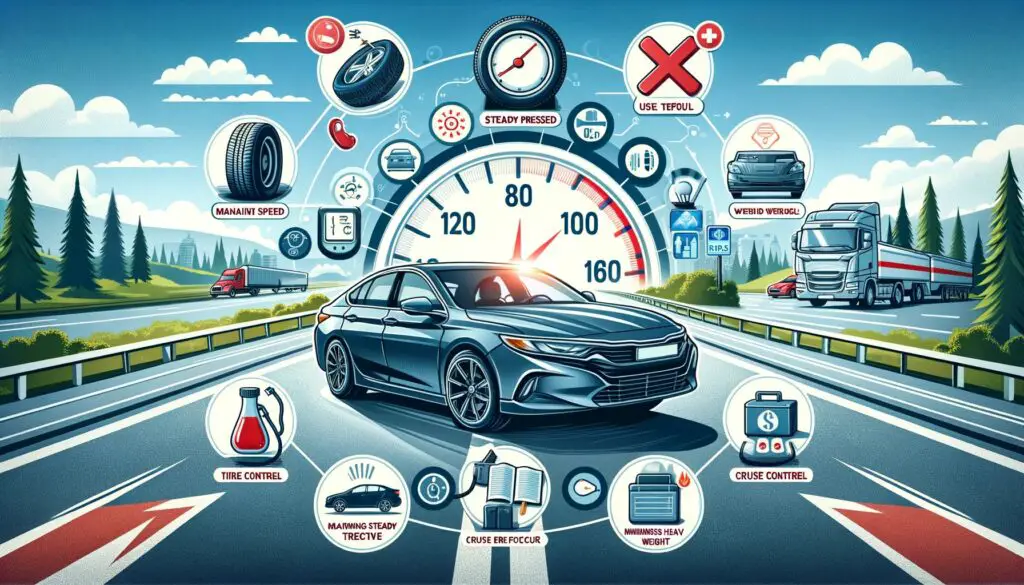In today’s world, where environmental concerns and economic considerations are at the forefront, optimizing car fuel efficiency is paramount. As responsible car owners, it’s crucial to understand how improving fuel efficiency not only saves money but also benefits the environment. In this guide, we delve deep into the various aspects of maximizing your car’s fuel efficiency to help you make informed decisions and take practical steps towards a more sustainable future.
Understanding Fuel Efficiency
Fuel efficiency, often measured in miles per gallon (MPG) or liters per 100 kilometers (L/100km), refers to the distance a vehicle can travel per unit of fuel consumed. Several factors influence a car’s fuel efficiency, including engine design, vehicle weight, aerodynamics, and driving habits.
Regular Maintenance for Optimal Performance
Regular maintenance is key to ensuring optimal fuel efficiency. Simple tasks such as regular oil changes, maintaining proper tire pressure, and replacing air filters can significantly improve engine performance and fuel economy. Additionally, ensuring spark plugs are in good condition is essential for maximizing fuel efficiency.
Driving Habits for Fuel Economy
Adopting fuel-efficient driving habits can lead to substantial fuel savings over time. Smooth acceleration and maintaining a steady speed are effective strategies for optimizing fuel efficiency. Avoiding excessive idling and strategically using air conditioning can further reduce fuel consumption during your journeys.
Vehicle Weight and Aerodynamics
Excess weight in a vehicle increases fuel consumption, as the engine must work harder to propel the added mass. Similarly, poor aerodynamics, such as roof racks or improperly loaded cargo, can create drag and decrease fuel efficiency. Packing smart and reducing unnecessary weight can improve aerodynamics and fuel economy.
Fuel-Efficient Technologies and Upgrades
Modern cars are equipped with various fuel-saving technologies, such as hybrid powertrains and aerodynamic enhancements, aimed at maximizing fuel efficiency. When considering a vehicle upgrade, opting for a more fuel-efficient model or exploring hybrid and electric options can lead to significant long-term fuel savings.
Smart Fueling Strategies
Choosing the right type of fuel for your vehicle is essential for optimal performance and fuel efficiency. Contrary to popular belief, premium fuel benefits are not universal and may not justify the higher cost for all cars. Additionally, adopting efficient refueling practices, such as filling up during cooler times of the day, can minimize fuel evaporation and waste.
Route Planning and Carpooling
Planning your routes efficiently and carpooling whenever possible can reduce fuel consumption and emissions. Avoiding congested routes and utilizing carpool lanes can help optimize fuel efficiency during your daily commute. Furthermore, carpooling not only saves fuel but also reduces traffic congestion and promotes social and environmental benefits.
Legal and Safe Modifications for Better Mileage
Certain vehicle modifications, such as installing aerodynamic enhancements or upgrading to low-rolling-resistance tires, can improve fuel efficiency. However, it’s essential to ensure that any modifications comply with legal regulations and do not compromise vehicle safety. Consulting with professionals and reputable mechanics can help you make informed decisions regarding car modifications.
Monitoring and Analyzing Your Fuel Efficiency
Tracking your car’s fuel efficiency over time provides valuable insights into its performance and helps identify potential issues or areas for improvement. Utilizing apps and gadgets designed to monitor fuel consumption and driving habits can assist in optimizing fuel efficiency and maximizing cost savings.
FAQs on Improving Car Fuel Efficiency
- Can regular maintenance significantly increase fuel efficiency? Regular maintenance, including oil changes and replacing air filters, can indeed improve fuel efficiency by ensuring optimal engine performance.
- How much fuel can I save by driving at the speed limit? Driving at the speed limit can lead to significant fuel savings compared to excessive speeding, as higher speeds increase aerodynamic drag and fuel consumption.
- Are fuel additives worth the investment? While some fuel additives claim to improve fuel efficiency, their effectiveness may vary, and it’s essential to research and choose reputable products backed by scientific evidence.
- Is it more fuel-efficient to drive with windows down or use AC? Driving with windows down at lower speeds may be more fuel-efficient than using air conditioning, but at higher speeds, the increased aerodynamic drag can negate any potential savings.
- How does tire size affect fuel efficiency? Larger tires typically have higher rolling resistance, which can decrease fuel efficiency. Choosing tires that are appropriately sized and inflated can help optimize fuel economy.
Conclusion
In conclusion, maximizing your car’s fuel efficiency is a multifaceted endeavor that encompasses various factors, from regular maintenance and fuel-efficient driving habits to smart refueling strategies and vehicle upgrades. By adopting a holistic approach and implementing the tips outlined in this guide, you can not only save money on fuel costs but also contribute to a greener and more sustainable future.
Additional Resources
For further reading on fuel efficiency and eco-friendly driving practices, consider exploring the following resources:
- Books:
- “The Fuel Economy Bible” by Peter M. Cooke
- “Green Driving: Eco-Friendly Tips for the Open Road” by Joshua Neighbors
- Websites:
- FuelEconomy.gov – Official U.S. government source for fuel economy information
- Green Car Reports – News and information on eco-friendly vehicles and technologies


